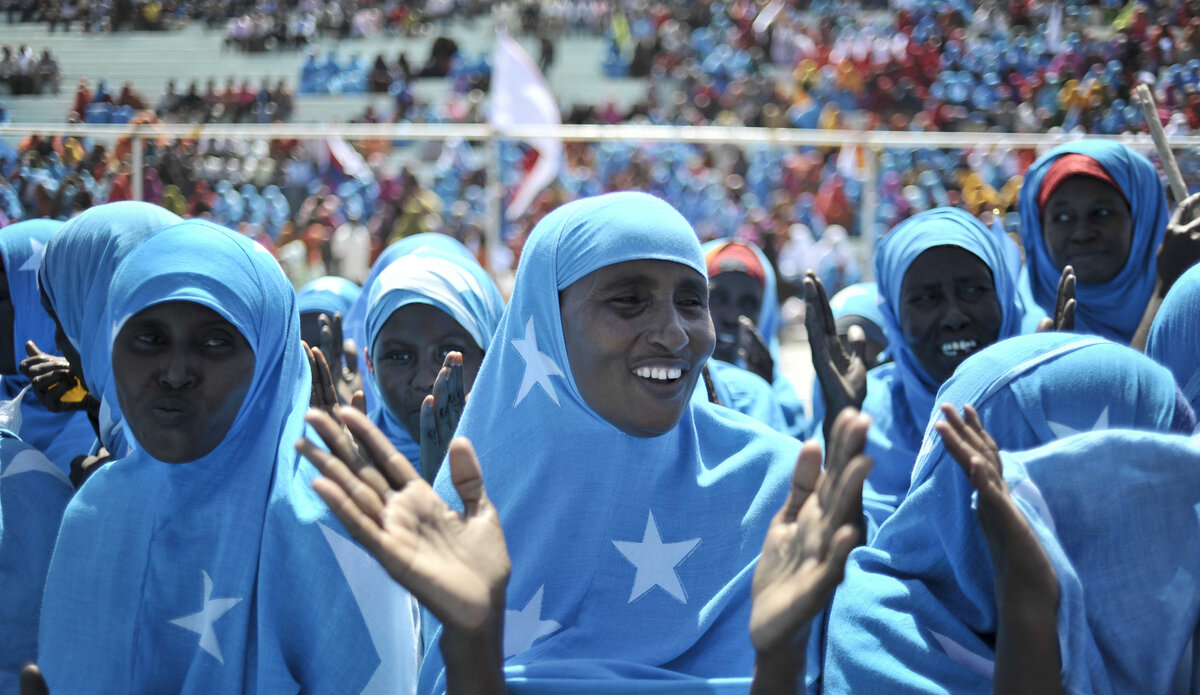Women Protection
Within UNSOM HRPG, the Women Protection Unit (WPU) is specifically mandated to support national efforts to ensure that sexual offences legislation is compatible with the Government’s obligations under international law and commitments on the protection of children and women and “to accelerate the implementation of the Joint Communiqué and the adoption and implementation of the new National Action Plan to Combat Sexual Violence in Conflict”.
Sexual violence, gender-based violence and conflict-related sexual violence (CRSV) remain widespread across Somalia.The survivors are mostly women and girls who have been displaced from their areas of origin. It serves as a tool to punish and assert dominance in the context of inter-clan conflicts, military offensives, displacement, and forced evictions, with women from IDP formal and informal settlements and from minority clans exposed to greatest risk. Continued insecurity and weak rule of law institutions have made the identification of perpetrators challenging with many cases being attributed to unidentified perpetrators. The lack of or limited access to available formal justice mechanisms remains a challenge.
In providing support to national efforts in addressing sexual violence, including CRSV, the UN faces three critical challenges in Somalia:
- Physical access to large parts of the country which is currently limited due to the security situation and poor road networks,
- The underreporting of sexual violence exacerbated by threats to survivors, and
- The weak legal and institutional framework.
In an effort to streamline the work on addressing CRSV, in 2017 UNSOM established the Monitoring, Analysis and Reporting Arrangements (MARA), which is composed of United Nations entities with expertise and capacity in programming that addresses gender-based violence and sexual violence; monitoring, verification and reporting of violations; gender analysis; and, security/protection expertise. The purpose of the MARA is to ensure the systematic gathering of timely, accurate, reliable and objective information on conflict-related sexual violence against women, men and children in Somalia. This information will be used to promote increased and timely action to prevent and respond to CRSV. The MARA also discusses strategic issues relating to sexual violence and makes recommendations to the United Nations Security Council on actions to take to address CRSV. In Somalia, the membership of the MARA is made up of UNDP, UNOCHA, UNHCR, IOM, UN Women, UNICEF, UNFPA and relevant UNSOM components.
In 2022, and in view of the rise of GBV/CRSV among the displaced populations caused by the drought, the work of the MARA has consistently focused in ensuring systematic mainstreaming of GBV/CRSV issues in humanitarian action to enhance the prevention and response capacity of women protection actors.
In May 2013, the Federal Government of Somalia signed a Joint Communique with the United Nations to end sexual violence in Conflict in Somalia. A year later in May 2014, and in advance of the End Sexual Violence Summit in London in June 2014, the Federal Government of Somalia through a participatory process led by the Ministry of Human Rights and Women’s Development and with the support of the United Nations and the United Kingdom developed the National Action Plan on Ending Sexual Violence in Conflict (NAP/SVC).
The NAP/SVC is in full alignment with the Somali Compact (2014 – 2016), the New Deal, the National Development Plan and various other government plans, strategies and initiatives. It provides the framework through which the UNSOM Women Protection Unit supports the Federal Government of Somalia in its work to address sexual violence in conflict.
In a welcome development, which further aligned existing initiatives on women protection agenda, in January 2022, the Ministry of Women and Human Rights Development incorporated the work plan for the Joint Communique on Ending Sexual Violence into the Somalia National Action Plan for the Implementation of the Somali Women’s Charter and UNSCR 1325 on Women, Peace and Security 2021-2025 (NAP UNSCR 1325).
As part of key efforts to support the implementation of the NAP/SVC, WP has been involved in the finalization of the Sexual Offences Bill (SOB 2018) which was approved by Cabinet but is yet to be enacted.
In addition to the NAP/SVC and in line with priorities it sets for the women protection agenda in Somalia, two joint programs with the Federal Government ensure the United Nations work and engagement in this regard is maximized:
- The Joint Programme on Women Peace and Protection (WPP) co-led by UNDP and UN Women with UNSOM HRPG and the Integrated Gender Office providing technical support. The program aims at promoting gender-responsive approaches to peacebuilding with particular emphasis in enhancing women’s decision-making and leadership roles including through strengthened protection at all levels of Government;
- The Joint Programme of Human Rights Phase 2 (JPHR-2) co-led by UNICEF and UNSOM HRPG which aims at strengthening the implementation of Somalia’s human rights commitments including the NAP, the Action Plan on Children and Armed Conflict and the UPR recommendations.
 UN
UN
